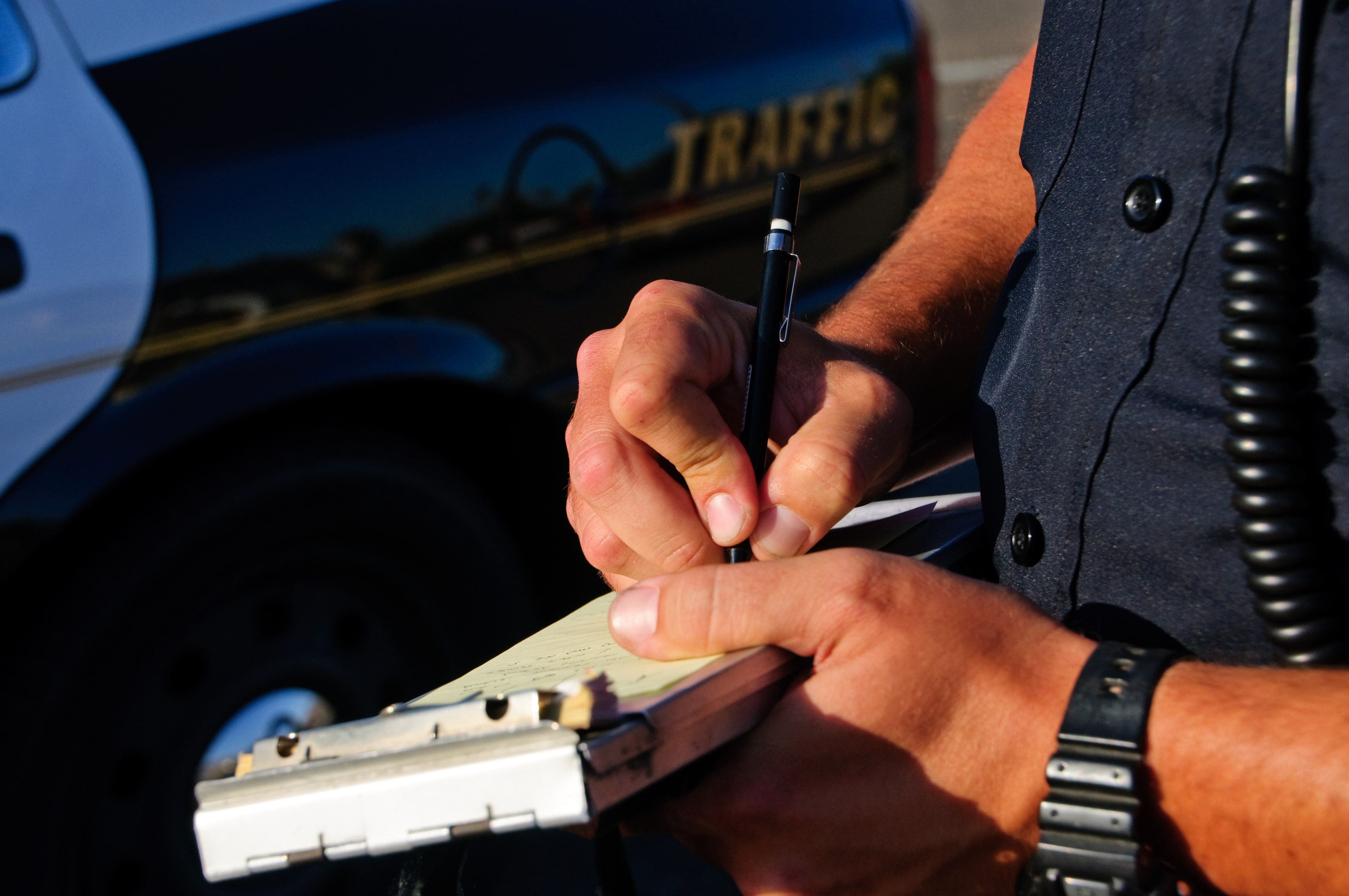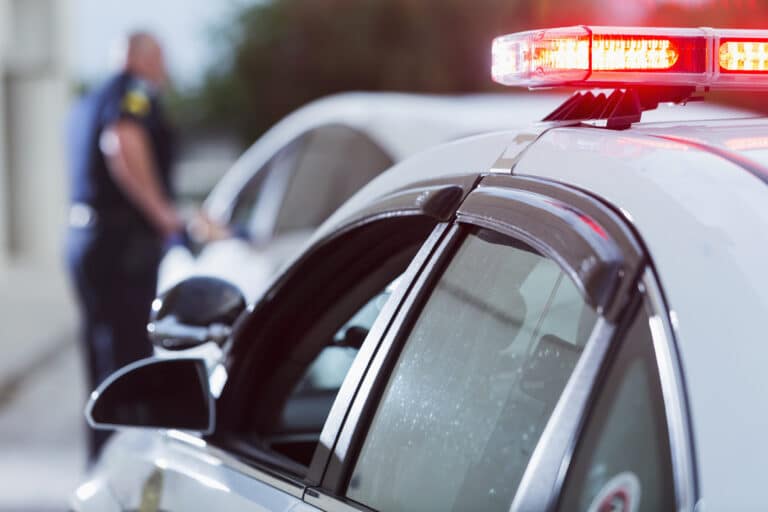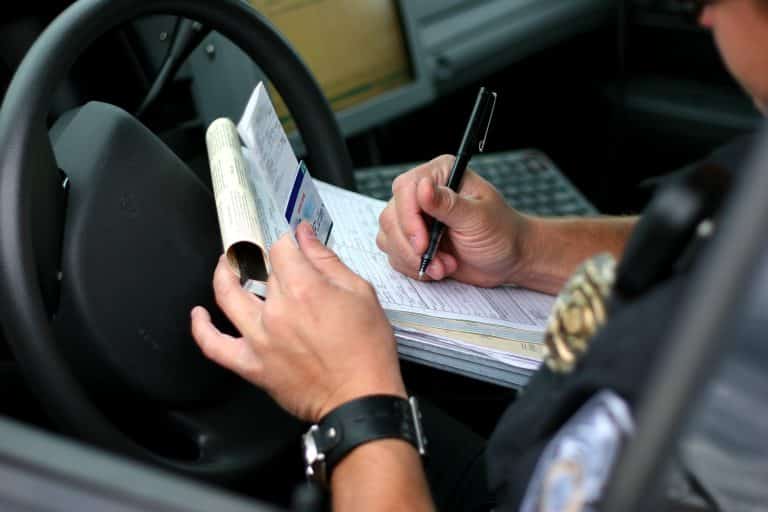I’ve had to justify thousands of traffic tickets in court over the course of my career. People have all sorts of reasons and excuses for why they did what they did, or why they think they didn’t do what I claim they did. I’ve never heard any truly outrageous defenses. Instead, I used to hear the same kinds of things over and over again, and they almost never convince a judge to rule in their favor. Here are the most common traffic ticket court claims that don’t work.
“I didn’t know…”
Driving is a privilege, and in exchange for that privilege, a driver is expected to know the law as well as be aware of their actions.
If you tell a judge that you didn’t know you were speeding, that’s not going to fly.
The same thing goes when claiming you were ignorant of the law. Here’s a case in point: New York City’s five boroughs are some of the very few parts of the country where the default rule is no right turns at red lights unless posted otherwise. In most states and cities you can make a right on red except where posted.
Let’s say someone makes a right-hand turn at a red light in New York City. Almost every intersection marking the start of the city’s limits, as well as highway exits within the city, have signs stating you can’t make a right on red. If this person gets a ticket for the offense, he or she can’t state that they didn’t know the law.
Still, when I would pull over drivers, especially those from out of state, I sometimes let them go with a warning. Everybody makes mistakes and cops are allowed to make a judgement call on the spot. But once that ticket is issued, fighting it by claiming ignorance is not a winning defense.
“No one was around.”
In New York City, the default speed limit is 25 mph. But late at night, on straightaways such as Utopia Parkway or Francis Lewis Boulevard in Queens, drivers like to rocket down the street. Their thinking is that no one else is around, the roads are clear of other drivers and pedestrians, so what’s the harm?
Unfortunately, that’s not how the law works in New York State. The same is true on highways. If you’re going 25 mph over the limit, you are getting a serious ticket and no judge is going to care what time it was or how crowded the roads were when you were speeding.
“I wasn’t even going that fast.”
In theory, an officer can ticket a person for going even 1 mph over the limit. Now, there’s an unwritten rule that officers should only ticket drivers who are going significantly over the limit—usually about 10 mph or more.
But sometimes a community gets together and demands more enforcement. Maybe there’s a lot of accidents or there’s a lot of kids in the neighborhood. Then cops might write tickets for going just a few miles per hour over the limit.
The fact is this is usually a claim that you can’t prove. Why should a judge believe you weren’t going as fast as the officer said you were going when you have no way to prove it?
If that’s the case, there’s no point in arguing that you weren’t going that fast. Maybe a sympathetic judge will give you the minimum fine, but you’re still going to get stuck with the points and likely insurance premium increase.
“It didn’t happen!”
When it comes to any traffic ticket case, there are often three sides to the story: the cop’s side, the driver’s side, and the truth.
It’s up to the judge to sort it all out. One thing that doesn’t help your case is to just contradict the officer or claim he or she is wrong. An officer has to be pretty sure the person was committing the violation in question, and judges know that. If it’s he said/she said, the judge will usually side with the cop.
Let me give you an example. If I saw a seatbelt dangling next to someone’s shoulder when they passed me, I would pull them over. It doesn’t matter how quickly that person snapped on that belt between seeing my sirens and me approaching the window. Telling an officer to their face they didn’t see what they know they saw is only going to guarantee a ticket. And telling the judge the officer is lying or mistaken won’t sway anyone either.
Almost any other excuse
“I needed to use the bathroom!”
“My mother is in the hospital.”
“The kids were screaming in the car.”
“I didn’t see the light change.”
“I was late for work.”
“I just wasn’t thinking.”
“I’ve been having a bad day.”
It doesn’t matter what the excuse is for committing a traffic offense. If a cop tells a judge the driver was speeding and the driver admits it but follows up with an excuse, he or she is going to get convicted. The law is all-or-nothing: you either committed the violation or you didn’t.
But just like the right-on-red situation, if I heard an excuse during a traffic stop, I might try to assess whether it’s an honest explanation or just the desperate claim of someone who doesn’t want a ticket. And sometimes you get a sympathetic cop who’s willing to let you off with a warning. However, when you face a judge and the cop is there opposite you in the courtroom, that cop is going to justify his/her ticket and the excuse is not going to help you.
What Does Work?
No one wants a ticket. When an officer issues a citation, the driver is obviously going to be upset, even if he or she is polite to the officer’s face. Thankfully, everyone gets their day in court and a driver who believes he or she was ticketed unfairly will get the chance to defend themselves before a judge.
The only thing that works are facts and legal arguments. If there are serious and specific facts that undermine an officer’s observations, these are what should be brought to court. A highly skilled attorney can often ask questions that poke holes in the officer’s case. Lawyers are also trained to make legal arguments that can oftentimes be effective in court. Statistically speaking, lawyers have a much higher success rate in court than non-lawyers do.





